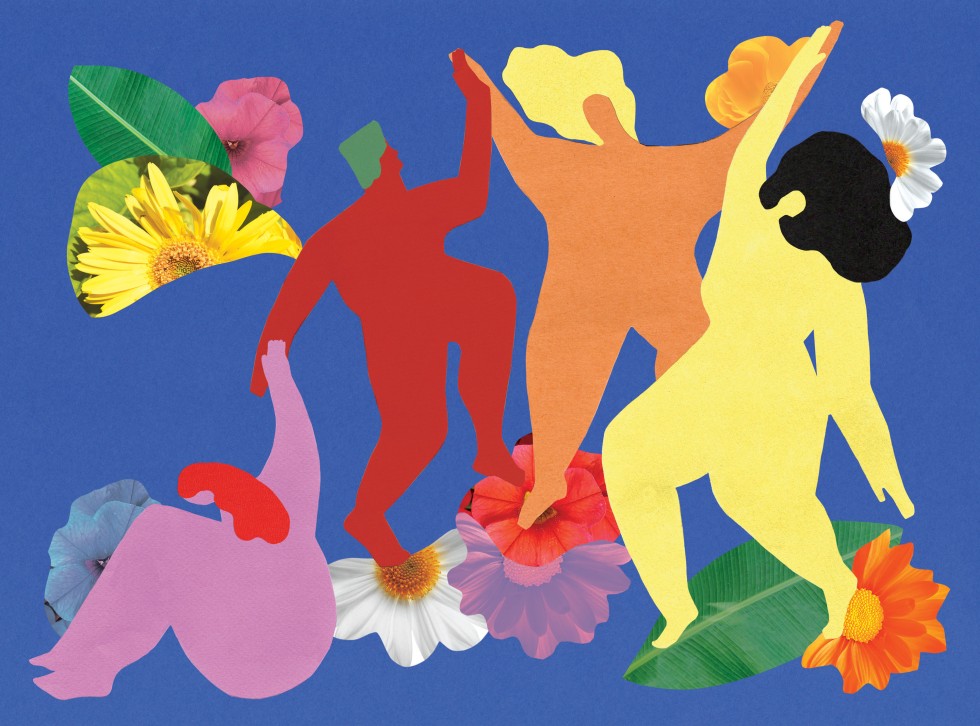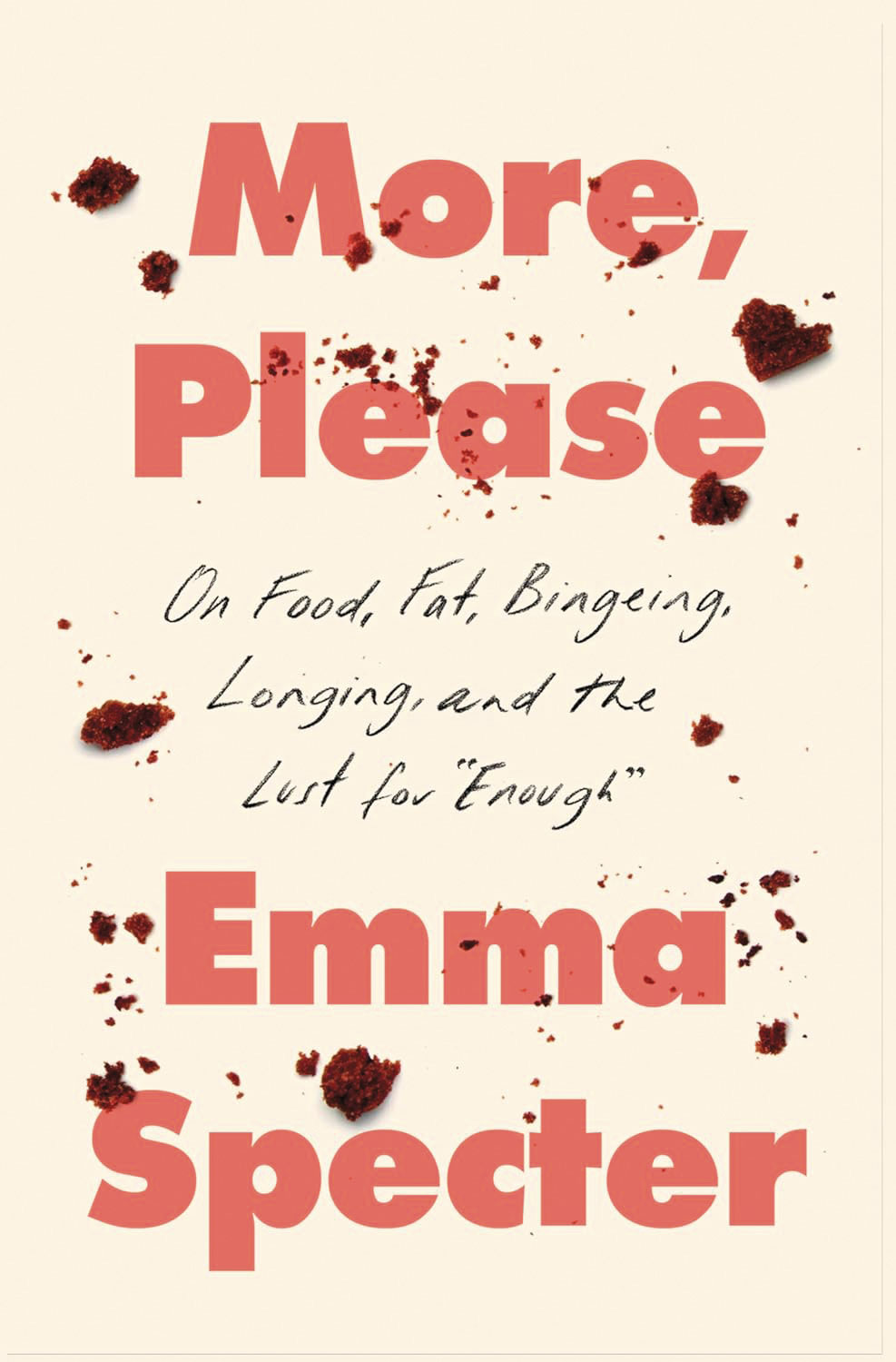Voices From the Past
Discovering Kenyon’s Latin and Greek inscriptions, long hidden in plain sight.
Read The StoryEmma Specter ’15 on success, storytelling and self-acceptance.

As a culture writer for Vogue, Emma Specter ’15 has fashioned a niche writing prolific and incisive commentary on film, TV, books, politics, news and LGBTQ+ pop culture. With the release of her first book in 2024, “More, Please: On Food, Fat, Bingeing, Longing and the Lust for ‘Enough,’” Specter got a taste of what it’s like to create some pop culture buzz herself.
Combining reporting with memoir, “More, Please,” investigates “the ways in which compulsory thinness, diet culture, and the seductive promise of ‘wellness’ have resulted in warping countless Americans’ relationship with healthy eating.” A starred Kirkus review called it “an inspiring personal account of living with an eating disorder and finding joy in a fat body,” and Glamour named it one of 2024’s best book club reads.
In a conversation with editor Elizabeth Weinstein, Specter discussed everything from her writing process and eating-disorder recovery to Kenyon’s impact on her writing style (“Kenyon is really good at teaching you to be informed and irreverent”) and the role of cultural criticism in society.

What inspired you to write “More, Please?”
I was advised that when you’re looking at a full-length book project, you should consider what story only you can tell. One of my favorite books is “The Recovering: Intoxication and Its Aftermath” by Leslie Jamison. I interviewed her in my book, and one of the most interesting things about her work is that she talks about the problem of getting sober when there is a literary tradition of writers romanticizing alcohol and drugs. I felt I hadn’t seen that kind of storytelling for my version of disordered eating in quite the same way. I never want to glamorize or glorify this experience, but sometimes the first step to getting better is recognizing that you’re not alone. So many more people than we’re aware of are struggling with nourishing themselves, and I think we have all been conditioned to have weird relationships with our bodies and with food.
What was the most challenging aspect of writing this book for you?
The most challenging thing is continuing to live and feel the experiences I wrote about in the book. It would be convenient storytelling if I could say I’m fully recovered, but I’ve shifted my idea of what recovery looks like. I’m in a much stronger place than when I started the book because I’ve done a lot of work around the feelings of loneliness and disconnection I write about. But it can feel especially difficult to slip and binge now that I’ve had this book come out.
And the most rewarding?
There was a time when I didn’t feel open to taking in other people’s struggles because I was struggling so much with my own. Telling this story freed me up to take in other people’s stories. I’m not a mental health professional, but sometimes you just need to know that someone sees it and gets it.
How have people responded to your book? Has anything surprised you?
I’ve been stunned by how gracious people are. It felt so good to celebrate at the book party my family threw for me. People from work, friends from New York and family showed up for me in ways that felt so abundant and full of humanity, which is not what I associate with bingeing. Being able to come together over a book that talks so much about an experience of feeling alone has been really beautiful. And part of having the grace to see myself more fully is allowing for the grace of other people getting older and growing. Girls from middle school have reached out — not necessarily anyone I had bad feelings about, but people I wouldn’t have expected to say, “I struggle with this too,” or “I’m sorry I was part of an environment that was hard on you.” I don’t think anyone owes me an apology, but having people offer up some of their struggles and thoughts about our shared experiences has been amazing.
How did your time at Kenyon help shape your writing voice?
The most foundational thing for me was working for and eventually editing the Kenyon Thrill. I never did the student newspaper in high school. I didn’t feel like a joiner. Kenyon was an incredibly enriching experience. I’m so grateful for the time I spent working on the Thrill. I made some of my best friends, learned to have a voice, learned to be observant — and learned to use that observation.
I’ve always had a tendency to procrastinate, and Katharine Weber, then-Richard L. Thomas Chair in Creative Writing, told me that the first thing you have to give up is not writing, which to me means you have to put aside the fantasy of what your writing could be and engage with what it is. It’s easy to mentally polish a fantasy, but it’s hard to actually start and put stuff on paper and do the scaffolding work of making it better line by line.
Part of your work involves interviewing celebrities. How do you prepare for these — especially if you are a fan?
It involves humiliating myself almost always, but probably more in my head than in a way the interviewee notices. The way I prepare is to make sure I have really specific questions so I’m not going off the cuff. I want to make sure I’m coming in with questions that feel like they’re leading somewhere. Sometimes that means sitting with silence or discomfort, which I learned at the Thrill. You can’t always smooth out a conversation so everyone feels 100% thrilled. In celebrity journalism, the goal isn’t necessarily to please but to illuminate. Something my mom, who’s also a journalist, taught me was that the lead of your story should be the thing you would tell a friend about the conversation — the most interesting part that you can’t wait to share. That has really guided me.
What’s next for you?
I hope the professional success I’ve enjoyed this year emboldens me to try different writing mediums that I’m not as comfortable with, like fiction and screenwriting. And I hope I can be as non-judgmental about my attempts to try different forms of writing as I would want anyone to be arriving at Kenyon freshman year. I want to avail myself of all the opportunities in the literary community in the same way I did at Kenyon.
Discovering Kenyon’s Latin and Greek inscriptions, long hidden in plain sight.
Read The StoryIn a freewheelin’ conversation, Jay Cocks ’66 H’04 talks with Chris Eigeman ’87 about his Oscar-nominated…
Read The StoryHow the Philander Chase Conservancy is protecting Kenyon’s rural setting, one farm at a time.
Read The Story